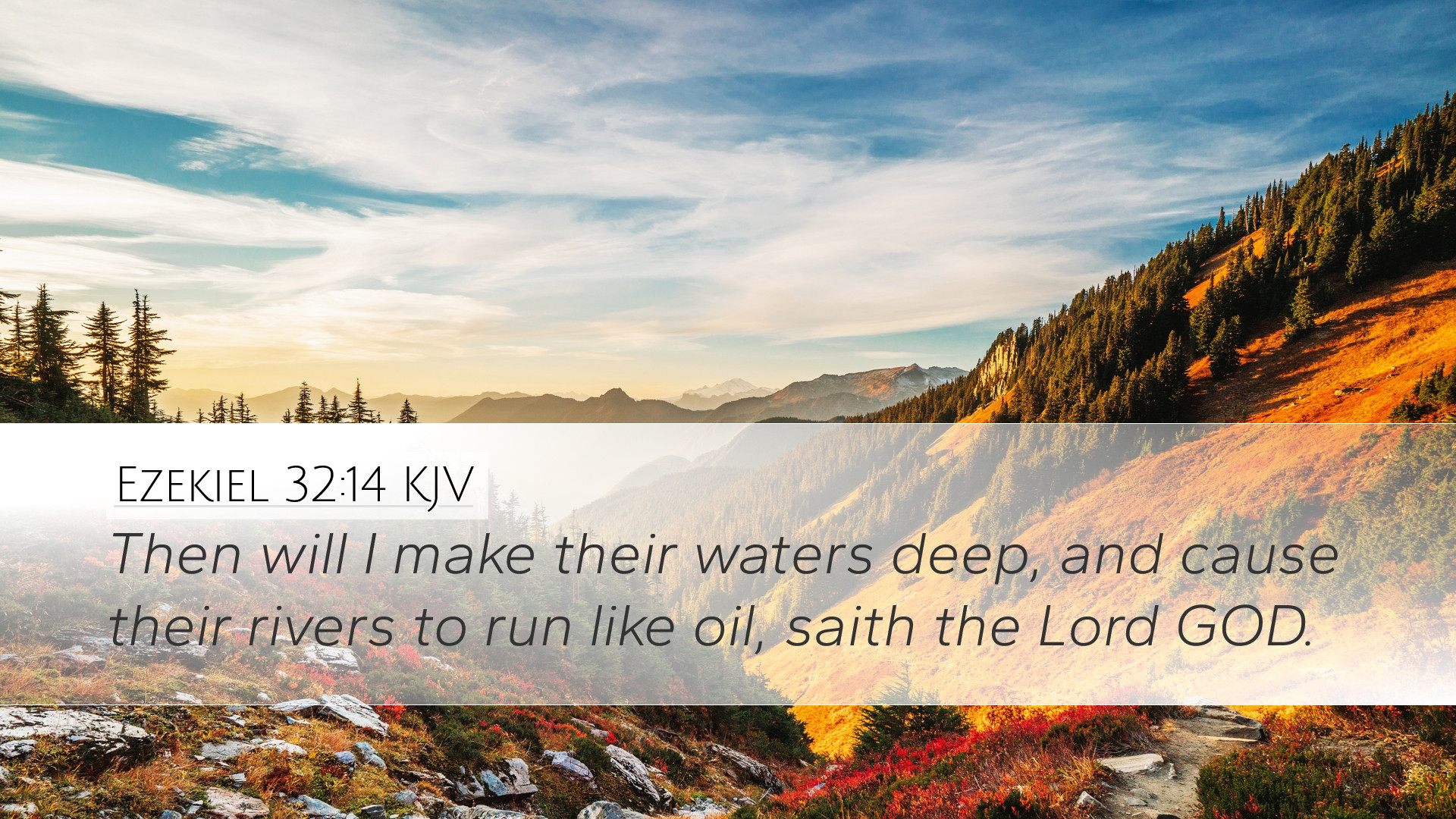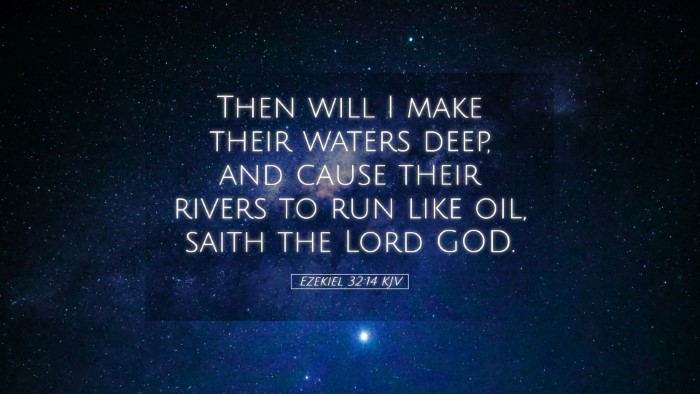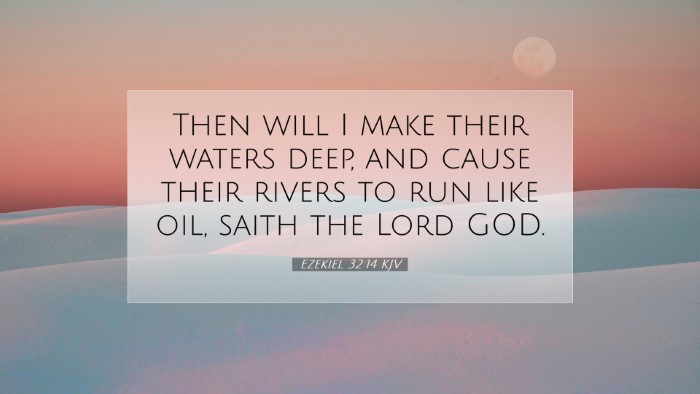Ezekiel 32:14 - Commentary Summary
Ezekiel 32:14 states: "Then will I make their waters deep, and cause their rivers to run like oil, saith the Lord God." This verse is part of a passage where God is prophesying the downfall of Egypt and its lamentation, demonstrating both God's sovereignty and the consequences of sin.
Contextual Analysis
The context of this verse lies within a prophetic oracle against the Pharaoh of Egypt. Ezekiel is speaking to the people in exile, providing them a perspective on God's judgment against a nation that had put its trust in its own strength rather than in God.
Insights from Public Domain Commentaries
Matthew Henry's Commentary
Matthew Henry emphasizes the metaphorical significance of water and oil in the biblical narrative. He explains that deep waters represent great calamity and judgment while rivers running like oil signify abundance and prosperity that can come from God, albeit in a context of divine judgment.
According to Henry, this verse illustrates how God can alter the state of nations, turning the rich blessings and perceived safety into desolation as a result of their rebellion against Him. He stresses that the phrase “saith the Lord God” implies certainty in the fulfillment of prophecy, reinforcing God's authority over creation and history.
Albert Barnes' Notes on the Bible
Albert Barnes provides further elaboration by framing the verse within the broader theme of restoration. He notes that the deepening of water signifies both the depth of God's judgment and the depth of sorrow that will engulf Egypt. Barnes remarks that God's promise to "make their waters deep" demonstrates His justice - a profound reminder for those who defy Him.
Barnes points out that rivers running like oil could symbolize the potential for revival and healing even amidst destruction, indicating that while Egypt will face judgment, God's mercy is also present in the possibility of restoration. This nuanced depiction encourages readers to consider God's multifaceted character.
Adam Clarke's Commentary
Adam Clarke's approach delves into the metaphorical paradigm of the waters and rivers in Ezekiel 32:14. He interprets the deep waters as representative of the turmoil and despair that follows due to pride and apostasy. Clarke emphasizes that the interaction between divine judgment and potential for renewal is a recurring theme in scripture.
In Clarke’s view, the phrase "run like oil" suggests a smooth, flowing ease that contrasts sharply with chaos. This dual imagery serves as a catalyst for examining God's ability to bring both judgment and fulfillment of promise. Clarke also encourages a reflection on the spiritual state of nations today, parallel to the ancient context of Egypt.
Theological Implications
From a theological standpoint, Ezekiel 32:14 underlines the intricate relationship between divine judgment and grace. It serves as a reminder of God's sovereignty and His active role in history, shaping the destinies of nations based on their adherence or rebellion against His will.
The promise of changing "waters" from a chaotic state to one that runs smoothly like oil invites a deeper exploration into God's potential for transformation. It suggests that while God's judgment is inevitable for those in rebellion, His mercy and ability to restore can lead to eventual renewal. This tension provides a rich terrain for preachers and theologians alike when discussing the balance of justice and mercy in God's character.
Practical Applications
- Leadership Reflection: Church leaders can draw parallels between the consequences of national sin and the moral health of their own congregations, reminding themselves of the weight of spiritual responsibility.
- Parishioner Focus: Members of the congregation may be encouraged to examine their personal lives for signs of rebellion against God, and consider the deep waters they may be wading, urging them toward repentance and renewal.
- Missionary Insights: Understanding the implications of God’s judgment on nations can inform missionary strategies, centering their work on not just assistance but also evangelism that cultivates a relationship with God.
Conclusion
Ezekiel 32:14 offers profound insight into God's character and His dealings with nations that stray from His paths. The synthesis of Henry, Barnes, and Clarke highlights a verse that encapsulates the dual nature of divine interaction: judgment and potential restoration. For pastors, students, and scholars, this verse serves as a compelling reminder of the depth of God’s engagement in the world and invites them to explore the rich implications for faith, leadership, and personal holiness.


